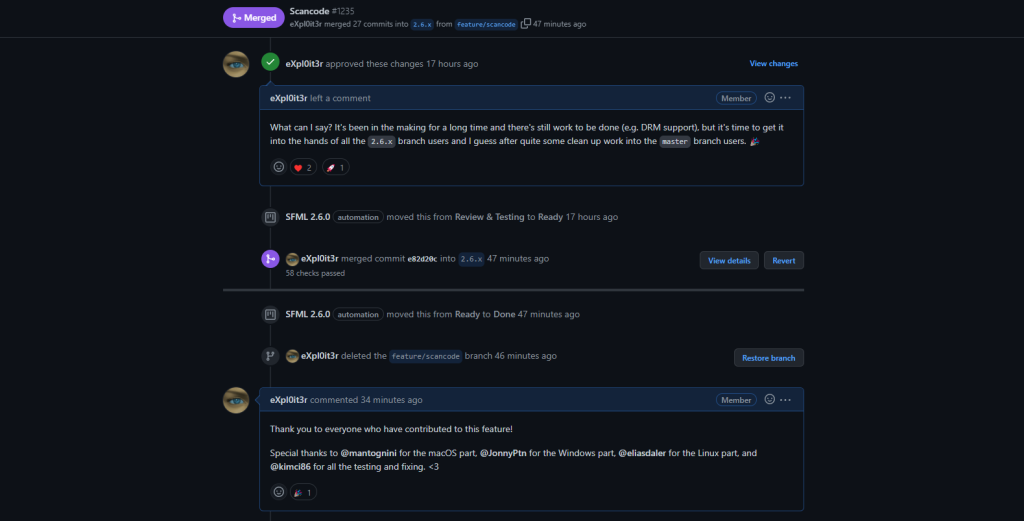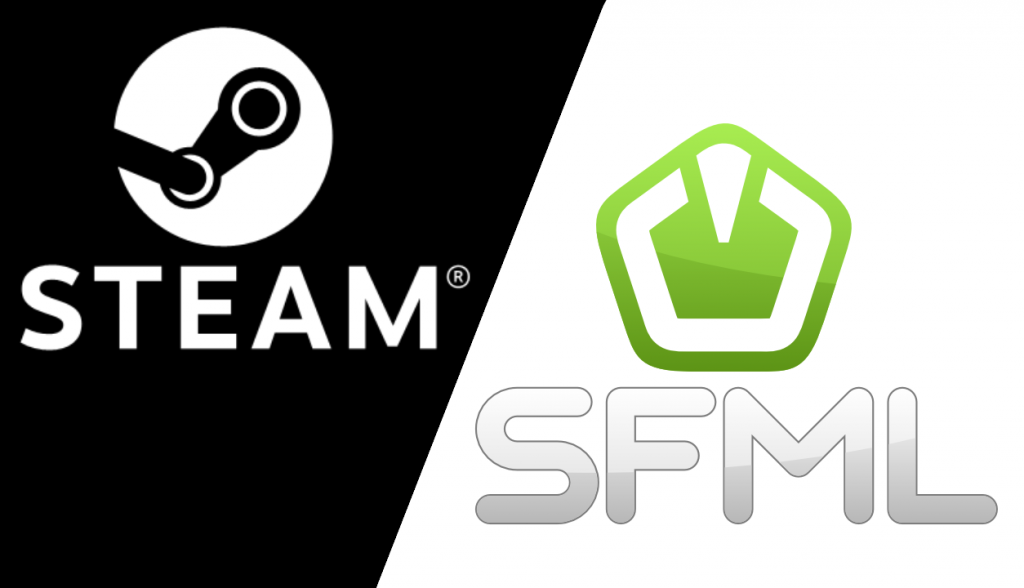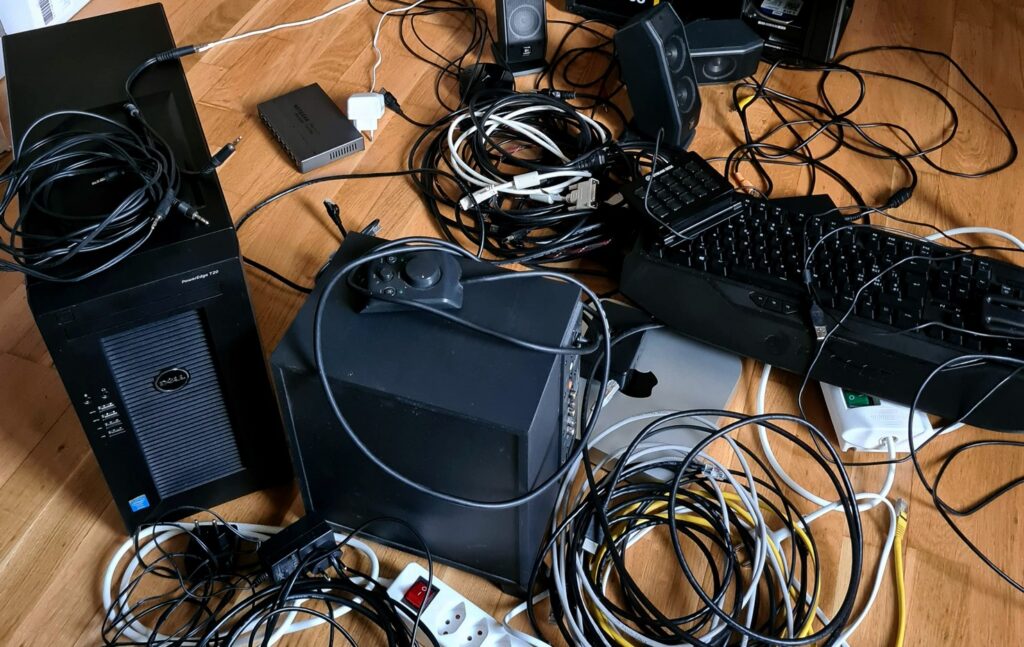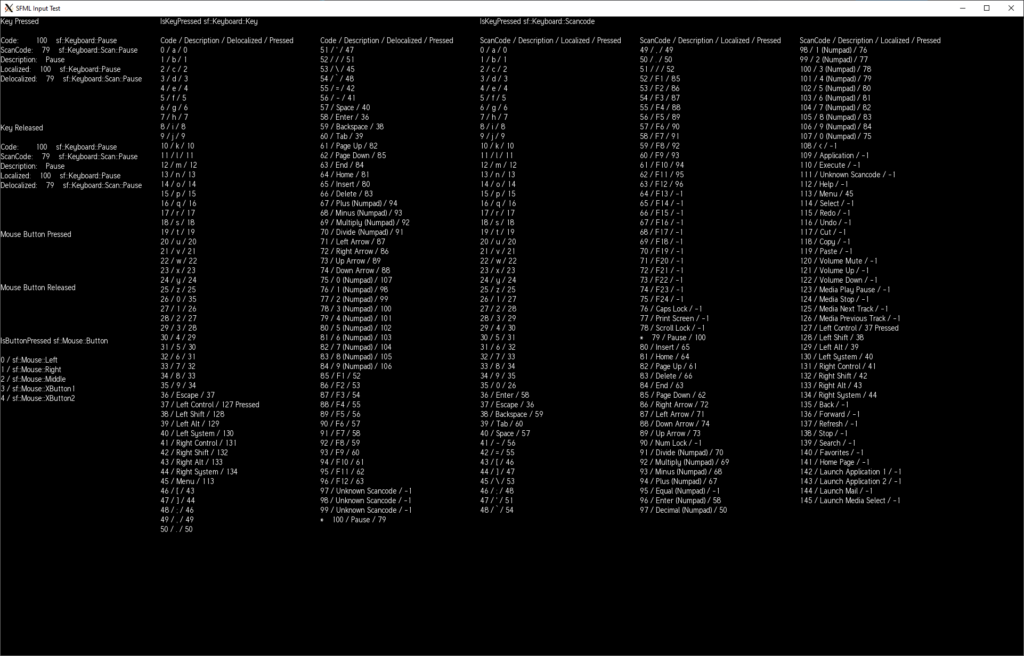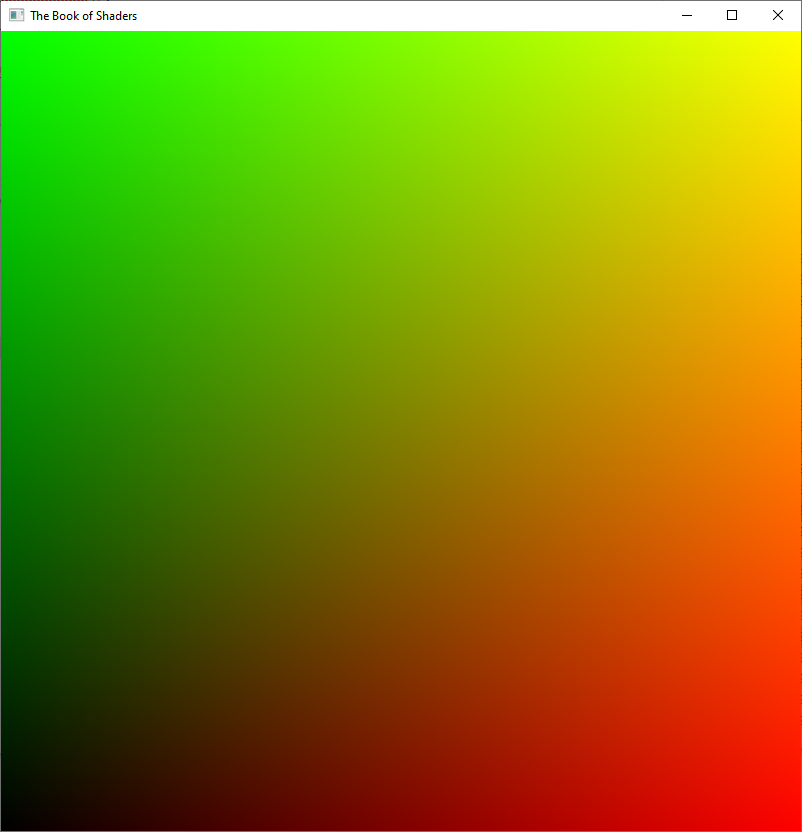Those few people, who’ve been reading my blog for the past nine or more years, may still vaguely remember all the SFML News posts, where I highlighted development changes and featured SFML games from the community. Given the passed time since my last post in 2014, I won’t be able to catch you up on […]
Category: Code
Anything on coding, programming, software engineering, C++, C# and more
SFML Steam Games – Part 2
Over the last five and bit years since the first part of this series (which I totally forgot about), we have seen quite a few more games join my list of SFML games on Steam. I’ll keep it chronologically to the best of my knowledge. If you think, I’ve missed a game, please mention it […]
Integration Tests Data Cleanup in C#
When writing integration tests against a database, we have to be think about the following three points: Test Data Handling – Create test data and clean it up after the test run Test Isolation – Ensure that no other test cases influence the current one Execution Performance – All tests should execute within reasonable time […]
Code and Run Apps With WSL2
Switching between VMs, dealing with the unfamiliarity feeling of the different OS and windowing system, and having your work-in-progress source code spread across multiple systems can become rather annoying and easily lead to a loss of motivation. For quite some time, I’ve been trying to get the Scancode feature finalized for SFML and experienced the […]
Discussions Around log4j and FOSS
Unless you’ve been disconnected from any digital or analog media in the past few days, you must have heard of the zero-day remote code execution (RCE) vulnerability detected in log4j, one of the most popular open source logging library for Java. Not running much or developing any Java application, the most interesting part about this […]
Almost Always Auto
For the past four years I’ve been developing mostly in C# at work and gotten used to some of the more generally accepted code styles in the .NET world or at least within my project. One of those styles is the usage of var basically everywhere, which has really grown on me and it’s also […]
Basic Fragment Shader With SFML
Today I had the idea to try and generate some “art” using semi-random vertices, shapes and colors, but to achieve that I knew, I had to finally learn a bit more about shaders, to get nice glow or similar effects. As I started reading through The Book of Shaders I created in parallel an example […]
Understanding RPATH (With CMake)
It may very well be that this is common knowledge among Linux enthusiasts, but for me, as a Windows user, it took quite a while to fully understand the concept of RPATH (Run-time Search Path). For those in the same boat, I want to share some of my newfound knowledge and of course also link […]
Missing PowerShell System Modules
This is a very short article in hopes, that it gets picked up by search engine and helps someone else or my future self. After the holidays I was making sure everything was up-to-date before start any work, but of course, things are never that easy and I ran into the following error, while updating […]
How Not To Rebrand – Toggl
On the 9th of September Toggl, my then time tracking app of choice, rebranded the company structure and … the design. On that morning, I noticed that the icon of the Toggl Chrome extension suddenly had a pink background. My through was, that someone had mixed up some image formats and the pink color was […]

